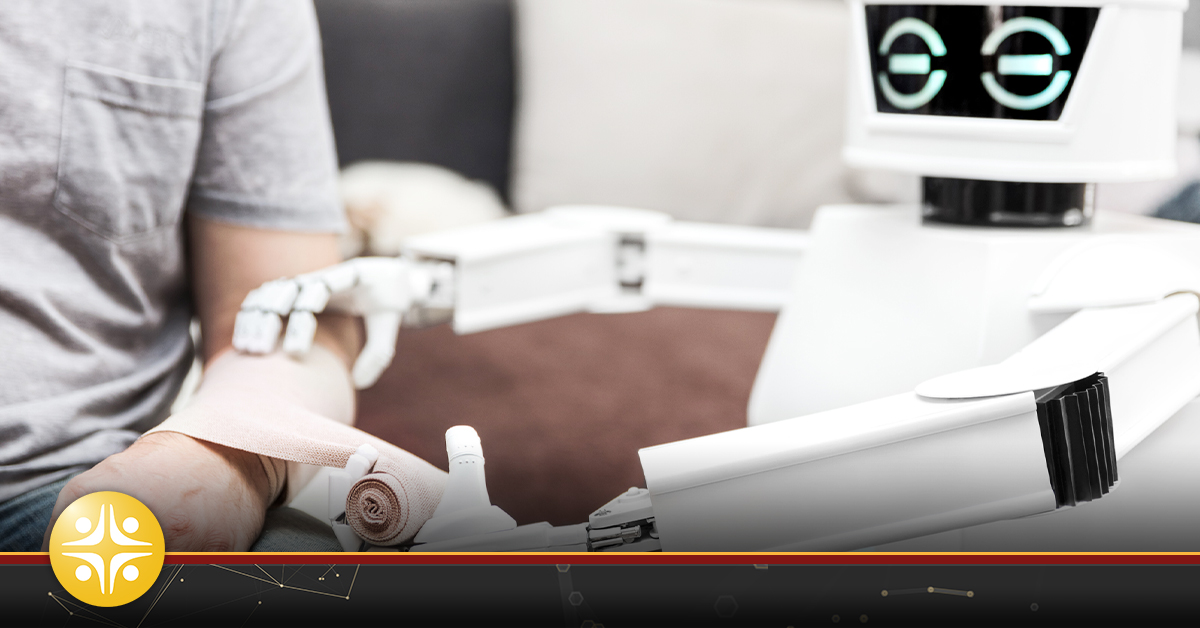Are Doctors Being Replaced by Robots?
Dawn Pascale

James Cameron helped us realize our deepest fears about robots; that they would be better, more powerful than humans. Movies like the Terminator and the Matrix, symbolize so many of our neuroses and our queasiness about technology and the unknown.
How replaceable are we?
Literally, every type of worker on the planet has probably wondered at some point if the robots, or in this case, artificial intelligence (AI), will take over their jobs in the future. It’s true that AI may shift redundant tasks and make them obsolete. That may require some reskilling of corporate workers. But many of these skills are unfounded particularly the fears voiced by doctors that think the robots will replace them in surgery or even at the bedside.
Science fiction is one thing, but the reality is far different. Here’s why doctors don’t need to worry that the robots will be rounding anytime soon.
Medical Futurist Says, “Don’t Worry About AI, Doc”
The Medical Futurist studied the impact of the intelligent machine on healthcare and called the worries that these tools will take our jobs, “fearmongering and irresponsible.” The article suggests this could keep younger students from choosing medicine as a career path.
The simple truth is that the machines are unlikely to replace the thinking, rational, and compassionate side of humans anytime soon. It’s possible that transcriptionists and medical secretaries may be replaced by technology in the future. The Guardian says, “The death of human jobs have often been greatly exaggerated and technology has created a lot more jobs than it has wiped out.” They say jobs that are 99% routine, such as telemarketing or even tax preparation, are much more likely to disappear over a knowledge-driven role in medicine.
Medical Futurist says there are some primary reasons why AI won’t put doctors out of business:
- The robots can’t replicate empathy. That core of listening, paying attention, expression, compassion, and developing trust is certainly not something the robots can do currently.
- Computers are linear. Medicine is anything but. Doctors use data, and quantitative analysis in their jobs, making that magic leap in problem-solving to heal patients requires more than a linear computer process, instead of leveraging creativity and real-life problem-solving skills. Medical Futurist says, “No robot or algorithm could clearly interpret complex, multi-layered challenges—involving the psyche. While they will provide the data, interpretation will always remain a human territory.
There will always be tasks a robot simply do that nurses and doctors are uniquely qualified to take on. Have you ever seen a Roomba doing the Heimlich maneuver on a choking patient? Of course not. The point here is that it’s not really an “us versus the robots” scenario. In fact, technology innovation is generally believed to help human beings improve.
However, the repetitious paperwork so often tied to the medical profession can, and should, be automated. The goal here is to harness the power of technology to help us work smarter, reduce redundant workflows, improve our work/life balance, and the lives of our patients. In our race to improve technology and especially automation technology, we must adapt the best parts of these tools to improve things. One example of how AI will help us includes a study that sought to identify metastatic breast cancer with an AI. The computer was combined with the human pathologist’s diagnosis; the successful identification increased significantly. Even better, the human error rate dropped by 85% when an AI was brought in to evaluate test scores.
It is exactly this kind of scenario that will help doctors and nurses achieve their real goal of improving healthcare outcomes for their patients.
Set aside any fears of unchecked technological progress and let us help you find a role where you are irreplaceable. Contact the healthcare recruiting experts at MedSource Consultants today about your options.

